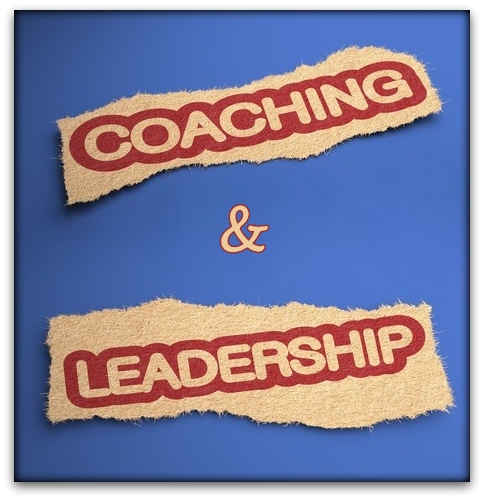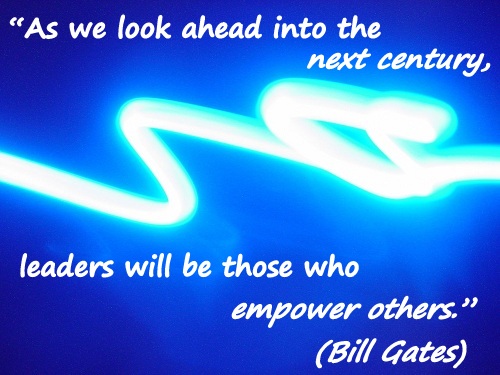This weeks guest post is an extract from Ben Morton’s new book, “The Little Book of Coaching Success” which is written for managers who believe in developing the people in the teams that they lead.

Coaching and Leadership
– Two Sides of the Same Coin
By Ben Morton
“Great leaders understand that every team member
is unique and every team member adds value.”
Ben Morton
I believe that there is a clear, close and incredibly significant linkage between coaching and leadership. To be a great leader you need to understand how to get the very best levels of performance from your people. To get the very best from your people, you need to know how best to support them, how to coach them.
I also believe that leadership and coaching has never been more important to the success of teams and organisations than it is now. The leadership capability of any team or organisation directly shapes its culture, how innovative its products and services are and the experience its customers have. This direct line between the ability of the organisation’s management community to lead, inspire and develop their people is why coaching is now so crucial.
Year on year we see more and more surveys that report the most common reasons why people choose to leave an organisation. One of the most common reasons that consistently appears in these findings is that people leave due to poor management, leadership or a lack of development. How many times have you read or heard this quote?
“People don’t leave bad organisations,
they leave bad managers.”
If there was ever a compelling reason to invest time, energy and resources into developing our ability to support our people then surely this is it. For me, the most effective way for any company to reduce its recruitment costs is to invest money in developing the leadership capability of its managers. It’s a simple formula. Better management equals lower staff turnover, equals lower recruitment costs.
That may be a compelling business case for the organisation but I often hear managers ask what’s in it for them. The answer is a very similar formula to that I described above. Better management equals lower staff turnover, equals less time recruiting and getting new recruits up to speed. It also equals more engaged staff who are willing and able to successfully take on more challenging projects. Ultimately, for you as a manager, the outcome is leading a team that’s a pleasure to lead because your people are motivated and successful.
Coaching is happening more and more in organisations today and recent research from the Chartered Institute of Personal and Development shows that:
- Coaching is consistently ranked within the most effective leadership and talent development solutions.
- 45% of organisations plan to utilise coaching to drive organisational performance in the next two years.
- 53% of Private Sector organisations believe their leaders lack the skills to effectively coach their people.
So, for you as a manager this is really saying that coaching your people is one of the most effective things you can do to develop your people. It’s also saying that if your organisations isn’t already using coaching to improve the business then the chances are that they soon will. Finally, it’s telling you that there are lots of managers and leaders out there who don’t yet have the skills to effectively coach their people. So this is your opportunity to be one of minority that does.
With this background in mind, I think that it’s useful to begin by exploring, just briefly, a few definitions of exactly what we mean when we talk about management, leadership and coaching.
The word Management has Anglo-Saxon or Norse roots originating from the word ‘Manus’, meaning by hand. It is therefore about managing productivity, tasks or resources. For me, management is more about “telling and doing” and less about “showing and inspiring”.
Leadership on the other hand has Latin roots meaning ‘path’ or ‘journey’. It’s about looking forwards; it’s about creating a vision of where you are heading and how things will be in the future. The best leaders have the ability to align people to that vision whilst motivating them to work passionately and relentlessly towards its fulfillment.
Coaching is about helping your employees become more effective, it’s about improving their performance and it’s about solutions. In this respect coaching is also about the future and their development journey. At its most fundamental level, coaching is about supporting and involving them in the process and investing your time in their development.
Having looked at the definitions we can start to see some similarities and parallels between leadership and coaching. Both are about the future, they are solutions focused, about making things better and moving forwards.
In adopting a management style that embraces coaching, you are becoming a leader. In other words you are helping your people to see their future, to realize their potential and to be inspired by what is possible.
More about Ben’s new book “The Little Book of Coaching Success”
The Little Book of Coaching Success has been written for managers who believe in developing the people in the teams that they lead. Ultimately, it is a book designed to accelerate their development as a line manager coach.
It provides insights into what prevents line managers being great coaches and practical advice into how to overcome these obstacles. It makes sure that coaches, who are at the very beginning of their experience, are comfortable with GROW, but then offers guidance and challenge into how to move beyond the relatively simplistic basics and develop their own coaching style. Whether you are a beginner as a line manager coach, or one who is looking to enhance their skills, you will at the very least find some useful hints and tips within its pages.
The book is available to buy here:
About Ben Morton
Ben is a Chartered Member of the CIPD with approaching two decades of experience in leadership, learning and management. His broad range of experience is gained from roles including Group Head of HR and Training for a global subsidiary of TUI Travel and more recently 2-years in the Global Training Academy at Tesco.
He began his career in the British and trained at the Royal Military Academy Sandhurst. Following two operational tours of Iraq, Ben retired his commission as a Captain leaving the Forces in 2006.
Ben specializes in two key areas. Helping individuals moving into their first leadership role or those whose careers have progressed rapidly, finding themselves leading large and often very experienced teams. Secondly, he works with clients to enable them to understand what is required to develop high performing, highly effective teams.
You can find out more about Ben’s work via his blog, Unlocking Team Potential, or via his LinkedIn profile.




